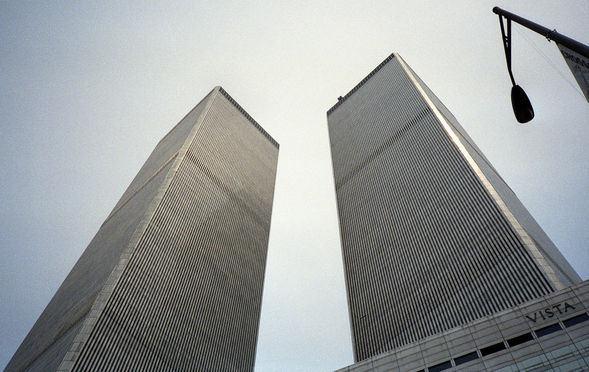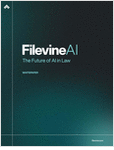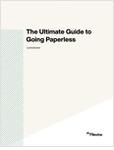Victims of Sept. 11, who seek to hold funders of the 2001 terror attacks accountable in court, came to Manhattan federal court in Foley Square on Thursday with serious evidence that Saudi Arabia supported the al-Qaida bombers. U.S. District Judge George Daniels promised to decide within 90 days whether to put the kingdom on trial.
Saudi Arabia chided the 9/11 families that this hearing was “not a political seminar.” It was, however, a seminar on history and epistemology. After 12 years of halting progress against Saudi charities, the 9/11 plaintiffs have revived a powerful claim against the kingdom. But the quest for historical truth threatens to founder on the judge’s futile desire for direct knowledge of espionage.
Much of the day turned on what exactly we know about a February 2000 chat between alleged Saudi spies Omar al Bayoumi and Fahad al Thumairy. Judge Daniels had no time for Saudi Arabia’s contention that it didn’t “technically” employ Bayoumi when it paid his salary for a no-show cover job. But at the heart of the Saudi spy plot posited by the 9/11 families, the judge seemed to struggle with the obvious.
“You don’t have any evidence as to what conversations [Thumairy] had with Bayoumi,” said Daniels. “What’s the factual basis for you to allege that when he met with Bayoumi he said, ‘Give lodging to the hijackers, assist them and give financial support to the hijackers so that they can carry out the 9/11 attacks?’”
What one spy said to the other can be inferred from the full circumstantial evidence, replied 9/11 attorney Sean Carter of Cozen O’Connor—and must be. Consider the timing and sequence of these events, as laid out by the plaintiffs.
Osama bin Laden sent the 9/11 hijackers Nawaf al Hazmi and Khalid al Mihdhar to Los Angeles in mid-January 2000 knowing that they didn’t speak a word of English and would be helpless on their own. Two weeks later, the Saudi spy Bayoumi met with the Islamist diplomat-imam Thumairy at the Saudi consul’s Islamic Affairs section, which the FBI knew to serve as Saudi Arabia’s radical Islamist fifth column.
Bayoumi drove straight from this not-so-mysterious chat to meet the two hijackers at Thumairy’s mosque. Three days later, Bayoumi moved the two hijackers into his own family apartment in San Diego. Bayoumi proceeded to open bank accounts and rent new apartments for the hijackers with his own money. Bayoumi connected the hijackers with another alleged Saudi agent who procured them fake IDs and admission to language and flight school. Bayoumi’s wife allegedly channeled $150,000 in support payments from a Saudi princess to the hijackers. In early 2000 Bayoumi received a promotion at his no-show cover job, and a significant raise in the salary and stipend covered by the kingdom. Over the same three months, he talked repeatedly by phone with Saudi diplomats in Los Angeles and D.C., not to mention the hijackers’ San Diego imam Anwar Aulaqi, who went on to become a senior al-Qaida leader.
When questioned by the 9/11 Commission under the watchful eye of the Saudi secret police, Thumairy clumsily denied knowing Bayoumi, and Bayoumi pretended to be surprised that Thumairy worked at the consulate.
Add it all up, and the two spies in L.A. were not chatting about the traffic on the Santa Monica Freeway. The judge must understand that historical intelligence doesn’t get any stronger. We go to war with Iraq over yellowcake, and we won’t go to a jury with two bad guys twirling their mustaches at Wahhabi central?
According to the complaint, a top FBI official has stated that “We [the FBI] firmly believed that he [Bayoumi] had knowledge [of the 9/11 plot], and that his meeting with them [Hazmi and Mihdhar] that day was more than coincidence.” It’s “implausible,” adds 9/11 commissioner John Lehman, “that the broad spectrum of evidence developed by the 9/11 Commission concerning the relationships among Omar al Bayoumi, Fahad al Thumairy, the Islamic Affairs Department of Saudi diplomatic missions, and 9/11 hijackers Nawaf al Hazmi and Khalid al Mihdhar can be explained away as merely coincidental.”
To 9/11 victims such as Matthew T. Sellitto, who flew in for the hearing from Florida, the evidence is clear. Sellitto, whose 23 year-old son Matthew C. of Cantor Fitzgerald was the youngest victim of the twin towers, said it pained him that the U.S. held the wrong country accountable in the Iraq war.
What about the 9/11 Commission itself? According to Carter, the staffers who studied the evidence concluded that Saudi Arabia was implicated—but that conclusion was removed from the 9/11 Report at the eleventh hour because senior staff wanted 100 percent certainty for such politically explosive allegations.
Michael Kellogg of Kellogg Huber Hansen Todd Evans & Figel, arguing for the defense, prefers the final draft of the 9/11 Report. Even after 12 years, he says, the 9/11 families can’t meet the high standard of evidence required by the Foreign Sovereign Immunities Act. He also argued that the case against Saudi Arabia and the Saudi High Commission for Relief of Bosnia & Herzegovina must be dismissed because they do not satisfy the “whole tort” exception, the “discretionary functions” clause or the causation requirement of the FSIA. Those legal arguments are likely to be resolved at the U.S. Court of Appeals for the Second Circuit—unless Congress steps in to resolve them first. But this case ain’t going to trial against Saudi unless Judge Daniels is willing to connect the dots.
The irony is that Daniels already entered a $6 billion default judgment against Iran on far weaker evidence. The allegations that Iran helped Hezbollah to cooperate with al-Qaida, and let al-Qaida terrorists pass through Iran, would seem to fail the test that the whole tort occurred on U.S. soil.
Yet after three hours of agonizing over the Saudi spy evidence, the judge treated the contention that Iran is liable for another $150 billion as an afterthought.
At the end of Thursday’s hearing, James Kreindler of Kreindler & Kreindler announced that his large group of 9/11 plaintiffs, headlined by the Ashton family, had a claim against Iran. And therefore, they were entitled to the same default judgment received in 2011 by the much smaller plaintiffs group headlined by the Havlish family. Kreindler said that the $6 billion awarded in Havlish for 47 fatalities implied damages of $150 billion for the 857 fatalities and 1,750 injuries alleged by the Ashton plaintiffs. But for fear of disrupting diplomacy, Kreindler said he was only seeking a finding of liability—to stake a claim in the political settlement likely to resolve Iranian terror claims. The judge said he’d hold a Jan. 14 conference and “see where we are.”
In the meantime here’s free advice from The Global Lawyer. Iran should show up in court before a megajudgment jeopardizes its historic deal. And Judge Daniels should let a jury see the evidence against the nation that actually bears blame for 9/11. We owe it to Matthew T. and Matthew C. Sellitto.






